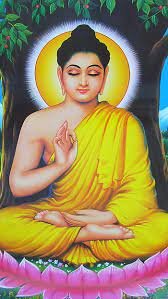Gautama Buddha in Hinduism

Gautama Buddha is considered an important historical figure in Hinduism, although his teachings and philosophy differ significantly from traditional Hinduism.
Buddha was born as Prince Siddhartha in what is now modern-day Nepal in the 6th century BCE. He was raised in the Hindu tradition and was exposed to Hindu teachings, including the four Vedas, Upanishads, and other Hindu philosophical texts. However, he later rejected many aspects of Hinduism and developed his own teachings and philosophy.
In Hinduism, Buddha is considered an avatar or incarnation of Lord Vishnu, one of the major deities in Hinduism. Some Hindu traditions also view Buddha as an enlightened being who came to spread the message of peace and non-violence.
The influence of Buddha on Hinduism can be seen in several ways. For example, the idea of ahimsa or non-violence, which is central to Buddhist teachings, has become an important aspect of Hinduism as well. Many Hindu reformers have drawn inspiration from Buddha's teachings, particularly his emphasis on compassion, meditation, and detachment from material possessions.
In some parts of India, particularly in the eastern states, there are also many Buddhist temples and monuments that are revered by both Buddhists and Hindus alike. These sites are important pilgrimage destinations for both Hindus and Buddhists.
Overall, while Buddha's teachings and philosophy differ significantly from traditional Hinduism, his influence on Hinduism cannot be denied. His emphasis on compassion, non-violence, and detachment has had a lasting impact on Hinduism, particularly in the areas of spirituality and social reform.